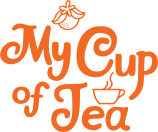
The Honorable Word
Recently a Tennessee politician posted to his Twitter account that our country needed to,
“…return working families to honorable jobs rather than another government program.”
At first blush, it may seem like a reasonable statement. Certainly, most people want a good paying job to care for their families. They would prefer to rely on their hard work, ingenuity, and creativity to make the ends meet than to receive government support.
But on a closer look, it is one word that makes all the difference in the meaning of this statement.
“Honorable.”
When put before the word “jobs” and no synonym is placed in front of “government,” the implication is clear. The author believes (and he’s not alone) that receiving support from the government is dishonorable.
In nearly seven years of working in the Orange Mound community, we’ve learned at least two important things:
- Most of the poor residents we encounter are decent and honorable people, but because of a series of mistakes – some they must own and others not their fault – found themselves destitute with nowhere else to turn but to their government.
- The assumptions we often make about people who look and live differently than we are almost always wrong.
Just within the walls of The House, we have witnessed the complex and multi-layered struggles of women striving for economic self-sufficiency.
A month ago, one woman nearing retirement age had to reduce her hours. Why? She has an incurable disease that makes it hard to walk, sit, or, stand for long periods of time. This qualifies her to receive a modest disability payment from the federal government. The Social Security Administration told her she was making too much money working at My Cup of Tea and was in danger of losing her disability. Losing that support and then being forced to retire because of her illness or age would leave her unable to pay the basic expenses necessary to survive.
Another woman, fought to overcome drug addiction and won after twenty-five years. She had an adequate job and a house. She was “turning the corner.” Six years ago, in the same month, she lost that job, and her special needs granddaughter came to live with her full time. She too is nearing retirement age and while My Cup of Tea had a job for her, until we grow more that job can only be part-time, so the aid she receives from Uncle Sam is necessary to care for her grandchild.
We could tell similar stories for every woman who has worked at My Cup of Tea. But economic self-sufficiency is about more than just having an “honorable” job. Knowledge about how the world works is a scarce resource among many poor people. Knowledge many of us take for granted like how to look for a job, how to write a resume, or where to find access to a computer to write that resume is rare among the poverty stricken.
Most of us when we search for a job leverage our networks. We talk to friends, family, and acquaintances. We often expand our search to all areas of the city, state, or region. We use job search apps and social media to connect with that college sorority sister who could put in a good word. And we rely on our work history to show we have the experience to do the job.
Generally, poor people don’t have a network. If they do, it’s limited to a small geographic area where they currently live or were raised. Most of the poor lack significant work history to demonstrate employability. It’s not that they aren’t willing or capable of learning, but they can’t demonstrate past exposure to the tasks or skills necessary to do the job for which they are applying.
Based on anecdotes from our neighbors in Orange Mound, it is likely that a high percentage of residents have never seen the Mississippi River or walked into a Starbucks, much less accessed the tools and people in any meaningful way necessary to find quality employment. Lack of exposure to the things we take for granted leads to a dearth of knowledge and the resources critical to becoming more economically self-reliant. Accepting government support is not the desire of most, but the necessity.
At My Cup of Tea, we have long proclaimed the dignity of work, and our mission includes economic self-sufficiency for the women we serve. We’re working to provide the knowledge and resources necessary to thrive and reduce reliance on government support. But we also know that struggling financially, even for many years, and needing help to feed, clothe, and shelter your family is not dishonorable.
“The righteous man knows the rights of the poor. A wicked man does not understand such knowledge.” - Psalm 29:7


